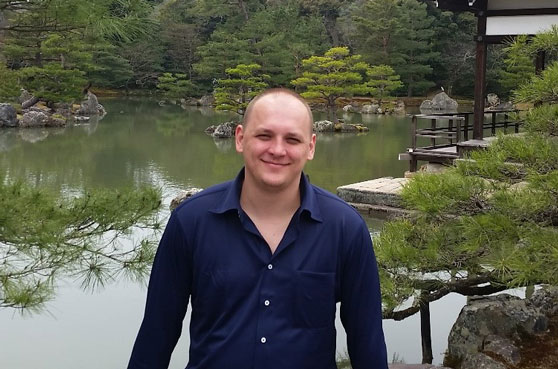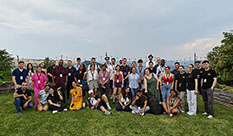More:
News & Stories
Algorithms that will help to effectively diagnose diseases
For the past year and a half, Dmitry Patashov has been living in Japan and is about to complete his Ph.D. on the topic of cognitive and motor activity of the brain.

Dmitry holds a bachelor's degree Magna Cum Laude in electrical and electronics engineering, and another bachelor's degree Suma Cum Laude in applied mathematics from HIT. He won a prestigious scholarship (MEXT) from Japanese government for Ph.D. studies at one of the best universities in Japan, University of Tsukuba.
Prior to his departure to Japan, Dmitry directed the Mathematical Modeling in Digital Health Laboratory at HIT. He studied and researched diseases such as Parkinson's and Alzheimer's as well as ADHD and MDD.
In a conversation with him from Japan, Dmitry says that he is currently developing methods for extracting information from records of brain and physiological activity that allows brain researchers and doctors to get meaningful information about brain performance in order to reach a correct diagnosis faster.
"When we talk about the field of biomedical data processing, we are talking about a multidisciplinary field,” says Dmitry. ”This requires a biomedical professionals like medical doctors, psychiatrists and brain researchers to work together with exact sciences specialists like engineers, computer scientists and mathematicians in order to develop methods for extracting information from the digital data accurately. Our research allows medical professionals, most of whom are not proficient in exact sciences, to take a ready algorithm to extract relevant medical information from the collected data without the need of learning new fields of science. Based on the received information, it is possible to diagnose, observe the progression of the disease and adjust the treatment".
During his stay in Japan, which may be extended, because he applied for post-doctoral position there, Dmitry continues to promote science and research ties between HIT and Tsukuba University, which will be reflected in academic collaborations, in joint seminars, student and faculty exchanges and even formulating a curriculum that combines engineering, science, applied mathematics and digital medical technologies in a direct route to a doctorate with the help of a full scholarship from university of Tsukuba.
Posted: 01/06/2021
- News & Events
International Week of Interdisciplinary Studies and Academic Collaborations in Crete
A substantial delegation of 16 students and four faculty members from HIT Holon Institute of Technology participated in week-long international activities and events at HMU-Hellenic Mediterranean University in Crete. ...


 Additional programs
Additional programs
